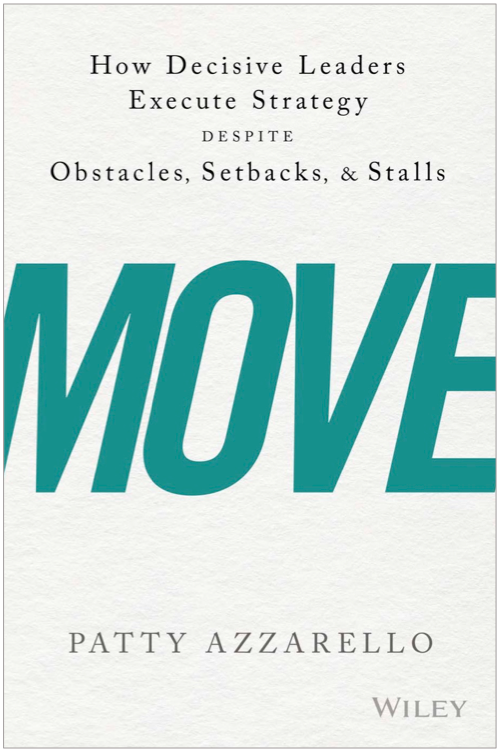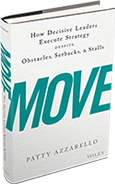Is it OK to not understand the work you manage?
Many people think that as a manager you need to understand the work not only as well as your reports, but even better.
They believe that if they are going to be credible with their team, they have to prove they are the smartest one.
This is dangerous thinking because it leads to two (at least two) serious problems.
1. You end up in competition with your team members, making them feel stressed and undervalued, instead of enabling them to thrive and contribute at their highest level.
2. You end up not doing your job as a leader because you are too busy staying involved in the work your team is doing.
There is a very simple way to think about this…
You need to understand deeply enough to MANAGE the work — but not to DO the work personally.
And as the leader you certainly don’t need to be the best at doing the work.
The danger of the super-expert manager
This type of belief gets propagated when organizations promote people to manager who are the best at doing the work instead of promoting people who will be the best managers.
Then the expectation persists, and is reinforced in the environment — that the managers have to be super-expert in the detail of the work.
In some environments this even leads to organizations de-valuing leadership talents outright, as unnecessary overhead and a waste of time.
And these super-expert managers tend to judge their team members’ capability and performance by their ability to compete on detail with themselves — and they are constantly testing people on their technical depth. (This is not leadership!)
But if you are a manager who wants to be a great leader and is struggling to manage work you don’t understand, this article is to encourage you that you are actually on the right track, and to give you some practical ideas about how to handle this.
Instead of the super-expert tendency of aways playing, “Are you as smart as I am?” or “Can I catch you out by asking you a random, esoteric detail you’ll probably not know, because you must prove your worth to me again today?” let’s talk about what you can instead do as an effective manager.
How to lead when you don’t know the details
When you are not an expert in the work, you can still be a strong leader by keeping ownership of outcomes.
Sit down with your team member and have a discussion about concrete, desired outcomes.
Focus on desired outcomes
Here are some useful outcome-oriented questions:
1. Over the next year, what do you think are the most important outcomes you/your team need to deliver each quarter?
2. Can you walk me through the rationale for why/how you selected those outcomes? Are these internally or externally driven?
3. Who other than our team cares about these outcomes? Are they on board?
4. Are there any other outcomes that you think we might have missed?
5. How do you propose that I should measure you and your team on those outcomes?
6. What do you see as the risks you will face in delivering those outcomes? Can I help?
I have found that my direct reports (who were expert in the work that I knew nothing about) could bring to the table excellent ideas and specific measures, and we could have a really concrete discussion about necessary outcomes.
Through this conversation you show that you care about the work, you understand it enough that you are interested in maximizing outcomes, and that are ready to help mitigate risks. And you will end up with a solid performance and tracking plan.
This is so much better than competing with your direct report or trying to prove that they are not competent!
And you are also adding value as a leader and to the business by focusing on outcomes and instead of details. An over-focus on details can be fascinating but not necessarily tied to delivering a meaningful and high value business outcome.
Your job as a leader is to make sure the activity is creating the right business outcomes.
Your job as a leader is not to question every choice and every detail, which actually derails progress.
Use your network
Another useful technique I have discovered when I don’t understand the work I am managing, is to find other leaders who have a lot more experience than I do managing this same function.
Then I ask them:
• What is your definition of high performance in this area?
• What is your definition of a failure?
• What are the biggest risks you need to manage?
• What opportunities do you think the best organizations of this type need to be focused on now and moving forward?
• What do you think the biggest problems on the horizon are for this type or organization?
• How do you measure your people?
• What signs should I be looking for to know if things are going in the right or work direction?
Remember your goal is to educate your self on how to MANAGE the function — not how to DO the function.
Adding business value
I can tell you that I spent a lot of time in my own career as the least technical technology executive in the organization, and I got pressure that I was not technical enough. People consistently tried this game on me to always prove that I didn’t know enough.
But by investing in being technical enough to manage outcomes, and then effectively delivering on them, I was not only able to prove my worth, but to deliver even bigger outcomes than the people trying to put me down as not being technical enough.
So don’t worry if you are managing a team and you don’t feel like the foremost expert in the content.
Be the expert in the outcomes and give your team and your business the advantage of YOU being a GREAT LEADER instead.
Patty Azzarello
Patty is available to speak at your company, annual meeting, or customer event. She can also deliver a custom workshop on Leadership or Strategy Execution for your leadership team. Contact Patty.
Or if you would like some personal help on your own professional development, check out her Executive Mentoring Group. It’s filled with insights, resources and support to build your executive confidence, advance your career, and includes direct mentoring from Patty.
MORE ABOUT PATTY:
Patty Azzarello is an executive, best-selling author, speaker and CEO/Business Advisor. She became the youngest general manager at HP at the age of 33, ran a billion dollar software business at 35 and became a CEO for the first time at 38 (all without turning into a self-centered, miserable jerk)




